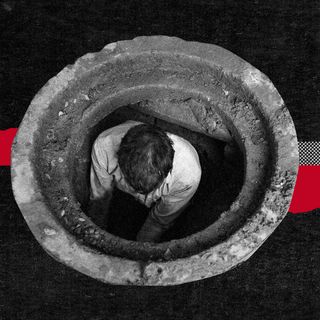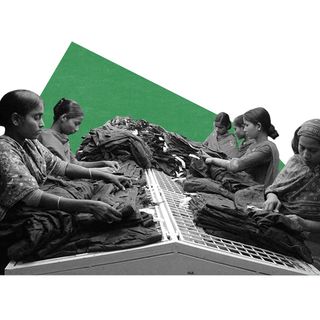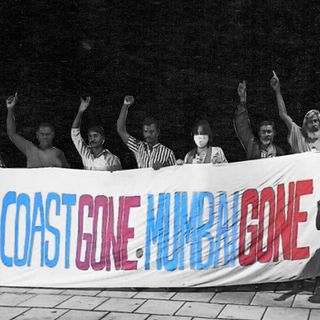Around 1,25,000 Anganwadi workers in Maharashtra are protesting inadequate facilities, a demand they have repeatedly raised. The women were given smartphones in 2018 to record data of mothers and children. They have returned at least 80,000 phones in the last two weeks due to technical glitches and outdated systems, which restrict them from logging data.
Anganwadi workers steer the rural public healthcare system. Before smartphones, they recorded data manually – about child nutrition, lactating mothers, pregnant women, and immunization – and later filed them for government use. The central government’s policy to give smartphones involved logging data on the “Poshan Tracker,” in a bid to speed up the process. The Poshan Tracker requires workers to enter data and also upload images. Many have noted the smartphones, with limited storage and functioning bandwidth, are faulty and do not support the work.
“We have been complaining to the central government about the technical issues that we have been facing but they don’t listen to us… In the next two weeks, we will return all the 150,000 mobiles that were provided to us,” Kamal Parulekar, general secretary, Anganwadi Sevika Union, told Hindustan Times. The ask is simple: to provide better smartphones that aid the process, not hinder it.
The workers haven’t stopped work; they will record data manually, as they did before. The information will however not be uploaded on the portal for government access. “… this is essential to make them listen to our demands,” Parulekar said.
For workers in the rural public healthcare system, the tryst with smartphones is thorny. It was offered as a way to make the data collection process efficient and accurate, and to help workers upload data to digital portals. Faulty smartphones and the lack of training to use them have, however, complicated the process.
The platform is also primarily in English, making it difficult for workers who prefer using their mastery over regional languages to engage with the digital application.
Related on The Swaddle:
ASHA Workers Protest In Bengaluru Due To Low Wages, PPE Shortages
Like Anganwadi workers, Accredited Social Health Activists (ASHAs) have also previously demanded smartphones. The manual documentation amounts to a tedious task, even resulting in inaccurate data and inefficiency in health care service delivery. State governments require data to be uploaded on their health portal. “Not every ASHA worker has a smartphone and in such a situation, it becomes very difficult to enter the data. Sometimes, we go back home and ask someone in the family/neighbor to lend us a phone to do our work. We are not able to upload the data by 5 pm, as required, because we do not have smartphones,” Rajbir Kaur, an ASHA worker, told The Tribune. Kaur, along with other ASHAs, protested last month in Ludhiana to demand a fixed salary and smartphones.
Some workers have had to use their personal smartphones for this. A report in HT last month noted that due to the use of personal smartphones for government work, individual families suffer. Women noted their children were not able to access online education on the phone due to limited bandwidth. Other reports point out how these apps delete social media platforms on one’s phones without authorization, impinging on individual privacy.
Some note that the digitization of work, monitoring of daily activities, and even tracking the use of other apps and the internet is a form of surveillance. “There isn’t even an illusion of choice. It’s almost like if they want to make money and put food on the table, they have to be subject to surveillance,” Vidushi Marda, a program officer at knowledge and data rights organization ARTICLE 19, told Coda Story.
What is more jarring is the expectation to keep using phones that don’t work properly. In some cases, workers note they were asked to get phones fixed as personal expenses. To put this into context, repairs cost somewhere between Rs. 500 – 2,000. The monthly honorarium paid to most Anganwadi workers is between Rs. 4,000 and 8,000. Both ASHA workers and Anganwadi workers also do not have a fixed salary as the government sees them as “volunteer workers” and not employees.
For now, the Anganwadi workers in Maharashtra say they will continue to demand better smartphones that allow them to do their work. In a system that mandates downloading applications for official use, public health workers will have to navigate privacy and choice, while balancing it with ease of work.




